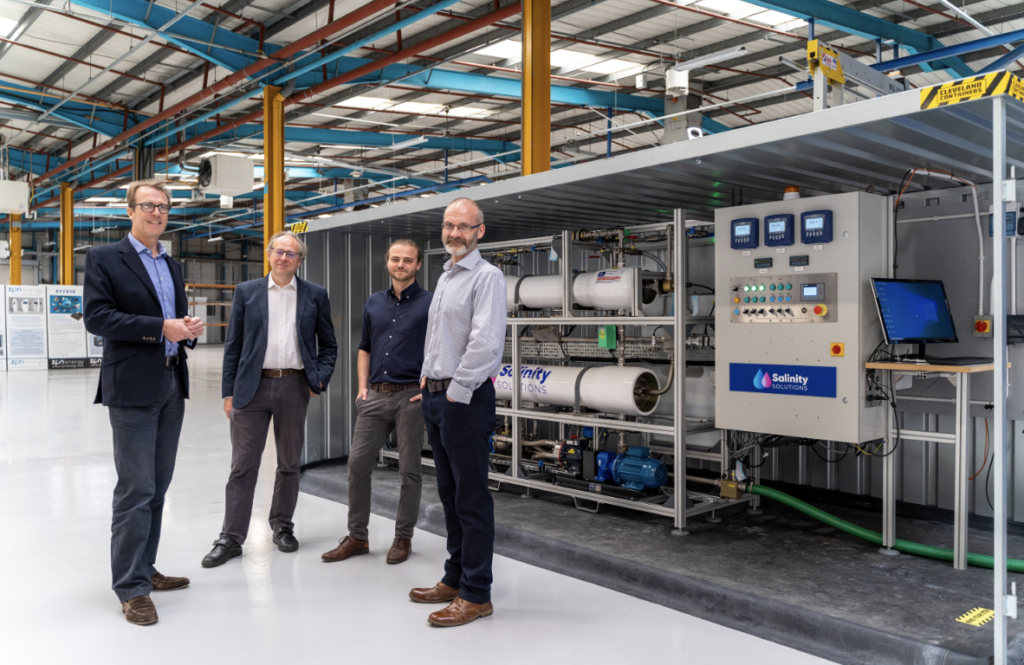As the global demand for water continues to grow, how do we reduce the vast amount of energy used in water treatment? A Coventry-based company claims to have the answer.
While we think of ourselves as residents of a blue planet, only 0.5% of the earth’s water is in the form of available fresh water. That’s the kind we need to survive. The supply of fresh water has been steadily decreasing, while demand has been rising. In the 20th Century, the world’s population quadrupled – but water use increased six-fold.
To access this finite resource, a huge unseen global industry pumps, treats and redistributes water to homes, farms and factories. But only if you’re lucky enough to live in a country with adequate water supply. According to Unicef, half of the world’s population could be living in areas facing water scarcity by as early as 2025.
The water industry consumes vast amounts of electricity – 978 trillion Watt-hours (tWh) in 2020, which is 4% of the world’s total energy, or enough to power almost 500 million electric cars for a year (roughly half the number of cars on the planet).



And this energy requirement is predicted to rise to almost 1500 tWh by 2040.
Meanwhile 80% of wastewater is released into the environment untreated. To improve the water quality of lakes, rivers and oceans more water treatment solutions are needed, which will in turn increase our energy consumption.
And where does all this energy come from? Currently 80% of the world’s electricity is generated from fossil fuels.
In order to get even close to the net zero goals of 2050, we need to improve the way we treat water, while reducing the energy it uses.
Part of the solution lies in better water treatment technologies, specifically ones that provide greater energy efficiency and versatility.
Salinity Solutions is on a mission to treat water better. After 10 years of development at the University of Birmingham and Aston University, their high recovery batch reverse osmosis (RO) system operates in a way that is over 50% more energy efficient than traditional RO systems (for an explanation of RO and how Salinity’s technology works visit salinitysolutions.co.uk/product/), offering significant savings in water treatment cost and carbon footprint. Plus, their compact, mobile units are scalable for a wide range of applications, for example solar powered units operating in remote areas.
Founder and CTO Tim Naughton added: “We are making the biggest step forward in water treatment in over 50 years. Our vision is to drastically cut the energy consumed by water treatment and deliver a sustainable solution to water scarcity.
“We’ve recently completed successful field trials with Cornish Lithium and we’re now looking at a wide range of other water treatment applications, including industrial, medical and agricultural. Our tests show that our system delivers 95% water recovery, or 20x brine concentration, for just 0.5kWh per tonne of feedwater, which is an industry game changer. Traditional RO systems operate at around 2-3 kWh/m3. We’re hoping to make a significant impact in a market projected to reach a value of 490 billion US dollars by 2029.
“Increasingly we’re hearing from major industry players that our combination of ultra-high energy efficiency and ultra-high recovery is ‘the holy grail’ for the next generation of water treatment systems.
“We’ve just had our first European patent approved and there are four more in the pipeline. This marks a significant milestone for us and a step up in value of the business.”
Salinity Solution is closing its Crowdcube funding round on Tuesday October 4th. To invest, visit their campaign page. If you are interested in investing more than £20,000, you should contact the company direct on info@salinitysolutions.co.uk .
Investments of this nature carry risks to your capital. Please Invest Aware.
Sources:
Wastewater market global size; Wastewater release; Energy consumption by water sector; World energy outlook;Volume of global car production; EV energy consumption: Fresh water; Fossil fuels; Water scarcity





